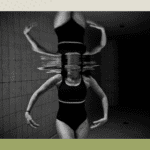During summer, we’ve dusted off our bicycles, kayaks and blow-up toys. Summer is the time to exercise, all that sun and warmth, our reasons to stay inside diminish as the sun brightens up our day. The World Health Organization has stated the minimum recommended intensity for older adults at least 150 min of aerobic activity at moderate intensity or 75 min of aerobic activity at vigorous intensity (or an equivalent combination) per week. However, a 2012 study showed that older adults are the least active group of our population. Some researchers have begun studying older adults to understand why.
There is now volumes of research that points to the need, benefits and worth of exercise in all adults as well as older adults. Just a few of those studies and their findings include: Physical activity and exercise can delay the start of or slow the progression of age related changes, exercise helps to combat the effects of aging which in turn allows older adults to participate in their activities of daily living longer, greater participation in physical activity and exercise is associated with increased physical capacity, cognitive functioning, physical and mental health, and quality of life and exercise reduces the likelihood of disease, disability, and premature death.
A few of the reasons that older adults are less likely to engage in exercise is that they experience overall more negative feeling. For example, they may feel weak or fatigued during physically demanding exercise, experience overall distress and anxiety and increased negative states, thus reducing their desire to participate in physical activity in the future. Some older adults are unable to revitalize after the challenging exercise and get on with their day in the same way they did before and thus are less likely to want to participate in future exercise.
We also know from research that all adults place greater value on pleasurable activities which then increases their participation in that activity. More research will occur, but the first studies on exercise show that focusing on the level of motivation and enthusiasm that older adults experience before they exercise can contribute to the positive feelings after the exercise and increase their participation in exercise afterwards. Including social factors such as welcoming participants, reviewing how to care for oneself during the more vigorous exercise bouts, planning longer periods of individual check-in’s as older adults wind down from exercise and as a group focusing on overall benefits are ways to support older adults as they move towards exercising and remaining healthy. Enjoy summer and if you know an older adult, reach out and applaud them for the exercise they engage in!
Categories: Wellbeing
